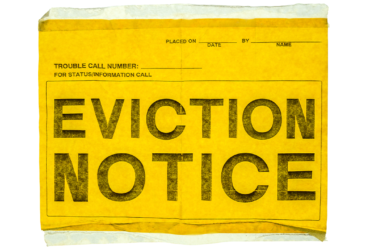Notice to pay or quit is a legal notice that is served on the tenant demanding that the tenant pay all outstanding rent or vacate the premises within a specific number of days
A written legal notice to the tenant by the landlord ordering the tenant to pay overdue rent or vacate the premises within a stated period of time. In most jurisdictions, the time with which the tenant must vacate is usually three days.
Failure to vacate or pay the outstanding rent within three days gives the legal right of the landlord to commence formal eviction proceedings. In different jurisdictions, eviction proceedings are sometimes referred to as unlawful detainer actions.





